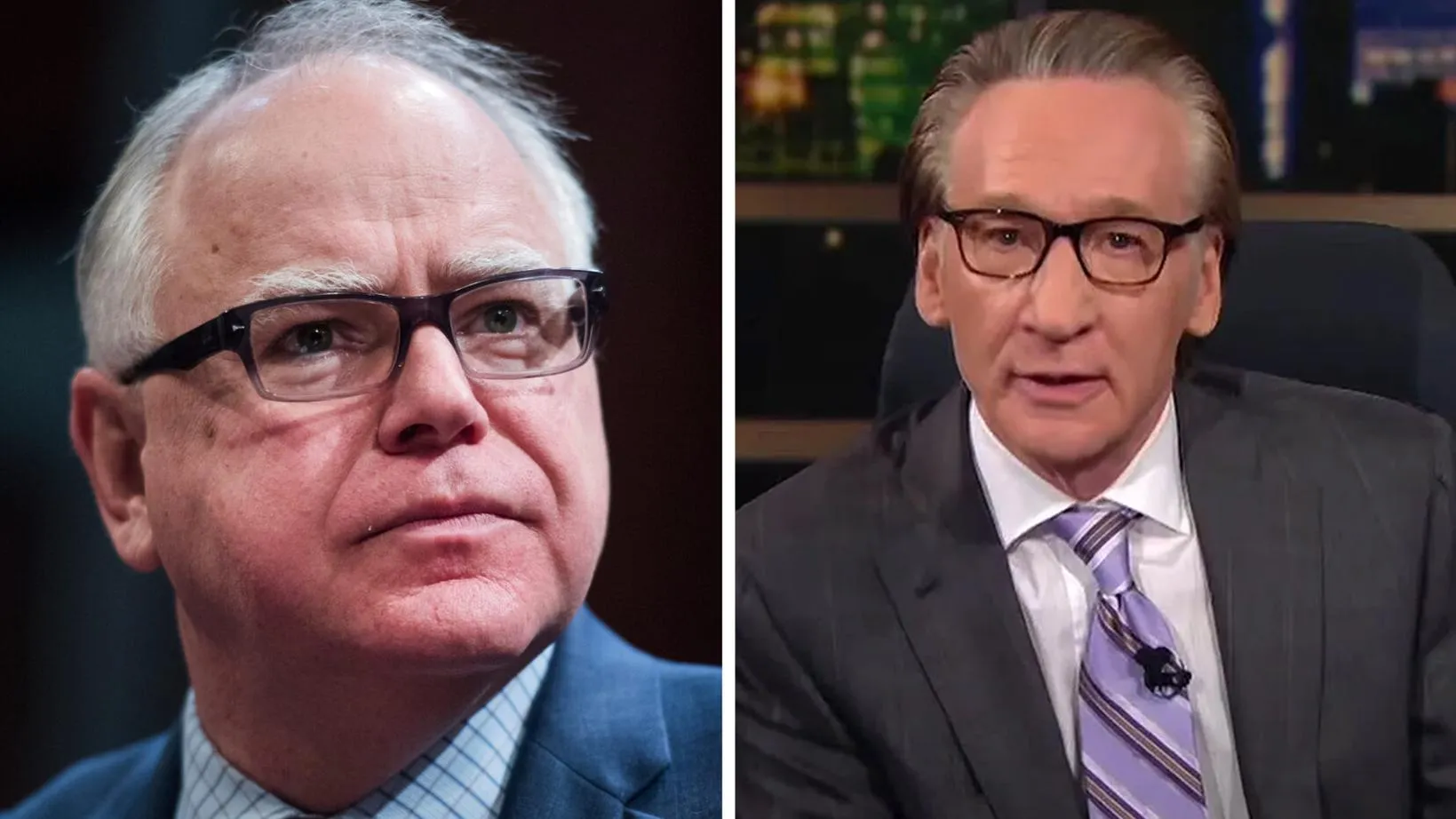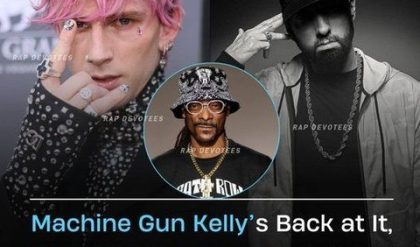In a recent episode of his HBO show Real Time with Bill Maher, the renowned comedian and political commentator Bill Maher did not hold back as he confronted Minnesota Governor Tim Walz. The tense exchange quickly became a viral moment, with Maher openly expressing his disappointment in Walz’s leadership, particularly regarding controversial issues such as pandemic policies, economic decisions, and the broader direction of the Democratic Party.

Maher, who is known for his sharp wit and no-holds-barred critiques of politicians across the spectrum, used his platform to call out what he described as a “lack of courage” from Democratic leaders, with Walz being a prime example in his eyes. The confrontation has since sparked debates among political pundits and citizens alike, leaving many wondering whether the current political climate requires more accountability from leaders like Walz.
1. Maher’s Frustration with the Democratic Party
Maher has never been shy about criticizing the Democratic Party when he believes it is failing to live up to its promises. For years, he has voiced concern over what he sees as a disconnect between the party’s leadership and the average American voter. During his heated discussion with Tim Walz, Maher expressed frustration over the party’s approach to issues like COVID-19 restrictions, economic recovery, and social policies.
In particular, Maher highlighted how pandemic policies, especially in states like Minnesota, have led to economic hardship and social unrest. He argued that while initial lockdowns may have been necessary, the continuation of restrictive measures has had devastating effects on small businesses and mental health. According to Maher, leaders like Walz have failed to adapt their strategies to balance safety with economic recovery.
“You’ve had time to reconsider,” Maher remarked. “But instead of leading with pragmatism, it feels like you’re just playing politics.”
2. Walz’s Response: Defending His Record
Governor Tim Walz did not remain silent during Maher’s critique. While visibly taken aback by the comedian’s bluntness, Walz defended his administration’s handling of the pandemic and other key issues. He pointed out that Minnesota’s actions were guided by public health experts, emphasizing that the state prioritized saving lives and preventing healthcare systems from becoming overwhelmed.
“I know these decisions weren’t easy,” Walz replied, “but we were dealing with an unprecedented crisis. Our priority was to protect Minnesotans, and sometimes that required tough calls.”
Walz also addressed the state’s economic recovery, noting that Minnesota has made strides in getting back on track after the pandemic. He highlighted investments in infrastructure, efforts to create new jobs, and the expansion of social safety nets as part of his administration’s success.
Despite his defense, Maher was quick to counter with the argument that the damage caused by overreach in pandemic policies had left many people distrustful of government leadership, particularly in states with stringent restrictions. Maher continued to press Walz on the idea that Democratic leaders like him have not shown enough foresight or flexibility in navigating the complex challenges brought about by the pandemic and economic instability.
3. The Broader Implications: What Does This Confrontation Mean for the Democrats?
Maher’s confrontation with Tim Walz is not just about one state’s handling of a crisis; it speaks to the broader frustration many Americans feel towards the Democratic Party’s approach to leadership. Maher has often criticized what he perceives as the party’s failure to connect with everyday voters, especially on issues that impact the economy, education, and public safety.
The discussion between Maher and Walz highlights a growing concern that the party, while promoting progressive ideals, has struggled to balance those values with pragmatic governance. Many Democrats, particularly those in leadership roles, are being challenged to reevaluate their strategies in the face of increasing dissatisfaction from both ends of the political spectrum.
Walz, as a prominent figure within the party, finds himself at the center of this debate. While he has defended his decisions as necessary for public health and economic recovery, Maher’s pointed criticisms echo the sentiments of many who feel the party must rethink its approach if it hopes to regain the trust of voters, particularly ahead of upcoming elections.
4. A Lesson in Accountability?
The exchange between Maher and Walz serves as a reminder of the importance of accountability in politics. In an era where politicians often face little direct confrontation on mainstream media platforms, Maher’s willingness to call out a sitting governor on national television is both rare and significant. Whether one agrees with Maher or sides with Walz, the discussion underscores the necessity of holding leaders to account for their decisions, particularly when those decisions have widespread impacts.
Maher’s directness may have shocked some, but it resonated with viewers who feel that political leaders, especially those in power during crises, should be more transparent and open to criticism. The heated exchange has also set a precedent for how public figures can be held responsible for their actions, even by those within their own ideological camp.
5. Conclusion: A Debate That Reflects Broader Issues
The confrontation between Bill Maher and Tim Walz goes beyond a simple disagreement on policy. It reflects deeper concerns about the direction of the Democratic Party, the handling of crises like the COVID-19 pandemic, and the role of political leaders in maintaining trust with the public. Maher’s disappointment with Walz is a sentiment shared by many who feel that politicians need to do more to address the complexities of modern governance while staying connected to the needs of the people they serve.
As political debates continue to evolve, this exchange serves as a powerful example of how conversations around leadership, accountability, and public trust are playing out on the national stage. Whether or not Maher’s confrontation will lead to changes within the Democratic Party remains to be seen, but it has certainly added fuel to an already ongoing debate.





